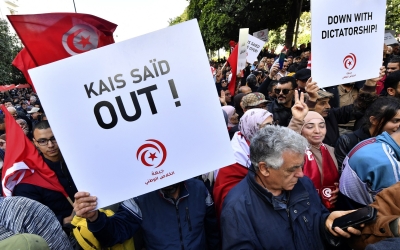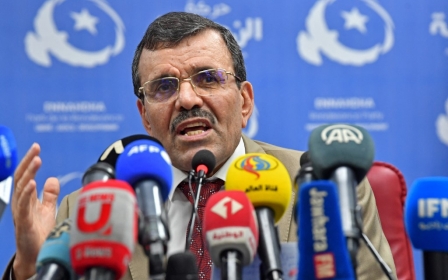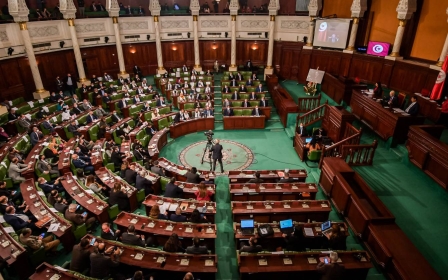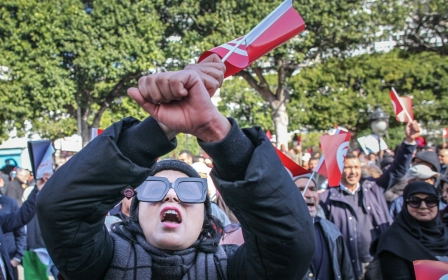US senator criticises Biden's 'business as usual' policy on Tunisia
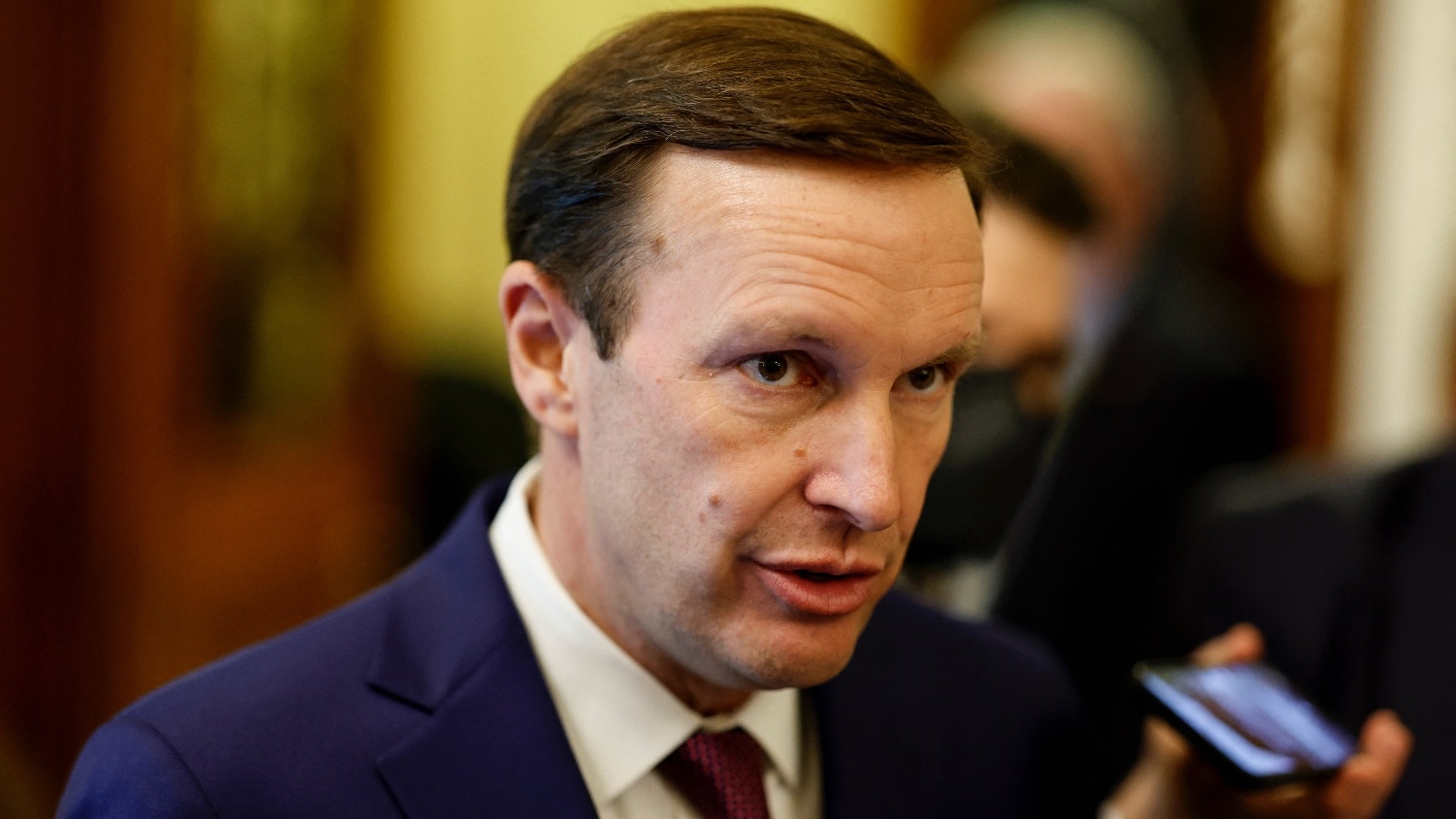
A leading US senator has criticised the Biden administration's policies concerning Tunisia, and urged the White House to slash military aid due to President Kais Saied's democratic backsliding.
Speaking at the US Institute of Peace on Tuesday, Senator Chris Murphy, who leads the Senate subcommittee on relations with the Middle East, said the administration needed to urgently shift course and end support for "brutal dictators".
"This administration has made it clear that they want to lead with American values, but at some point... you have to walk the walk on democracy, not just talk the talk," Murphy said.
"People are noticing that we still stay in business with brutal dictators, we still fund regimes that move away from democratic norms.
"It becomes hard to claim that your priority is democracy and human rights and the rule of law if you don’t change your policy when governments start to change their commitment to participatory democracy," he added.
New MEE newsletter: Jerusalem Dispatch
Sign up to get the latest insights and analysis on Israel-Palestine, alongside Turkey Unpacked and other MEE newsletters
Tunisia has been engulfed in a deepening political crisis since July 2021 when Saied unilaterally suspended parliament and dissolved the government.
The North African nation held parliamentary elections in December last year, which rights groups and Saied's political opponents have widely labelled a sham.
Just 11 percent of eligible voters cast ballots in an election marked by widespread apathy, where political parties were banned from participating.
In recent months, opposition to Saied has grown largely due to unpopular economic reforms, including spending cuts and the restructuring of public companies.
Tunisians have also been hit hard with soaring food prices and shortages of fuel and basic staples like sugar, vegetable oil and rice.
In recent weeks, Saied has embarked on what Amnesty International describes as a "politically motivated witch hunt", with the authorities arresting dozens of political activists, judges and lawyers.
On Tuesday, Human Rights Watch called on the government to immediately release Ali Laarayedh, who previously served as the country's prime minister from 2011 to 2013 and was arrested following December's elections.
Reduce military aid
The Biden administration has begun downsizing some sources of economic aid to Tunisia in its budgets for 2023 and 2024, but has maintained previous levels of security aid.
Murphy, a leading voice on foreign policy in the Senate, said that the US policies were flawed and Washington should do the exact opposite.
"The budget requests we're getting for Tunisia and the policy that we see from the administration still, basically look like business as usual," Murphy said.
"To believe that investment in the Tunisian military is the prescription for what will ultimately reverse course, I think is probably naive. We should be reducing aid to the military given their decision to back Saied's consolidation of power."
Murphy is not alone in his concerns about the trajectory of Tunisia under Saied.
Late last month, a group of 20 Democratic members of US Congress sent a letter to Secretary of State Antony Blinken, warning that the "stark" acceleration in Tunisia's shift towards authoritarianism was posing grave concerns for the US-Tunisia relationship.
"The administration should make clear that Saied’s crackdown undermines the confidence in the rule of law that is essential for a flourishing US-Tunisia relationship and international monetary support that could benefit the Tunisian people and alleviate economic hardship," the lawmakers said.
Middle East Eye delivers independent and unrivalled coverage and analysis of the Middle East, North Africa and beyond. To learn more about republishing this content and the associated fees, please fill out this form. More about MEE can be found here.


